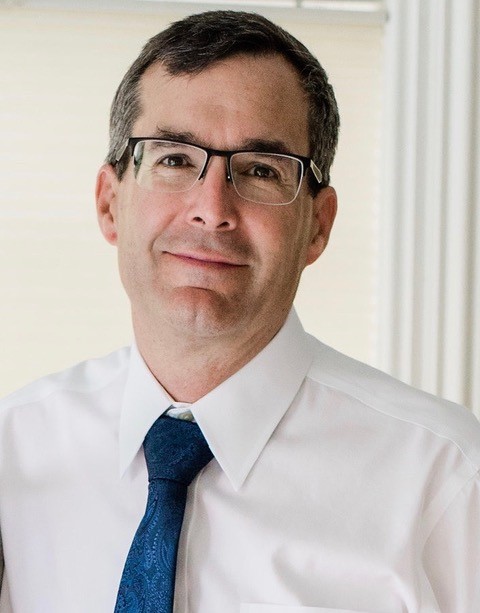 Terry Zehr is the conference minister of New York Mennonite Conference.
Terry Zehr is the conference minister of New York Mennonite Conference.
Several years ago, I had the privilege of hearing Dr. Walter Brueggemann speak at Eastern Mennonite University’s School for Leadership Training. As I recall, during one of his sessions, Dr. Brueggemann proposed reading scripture through the framework of ‘orientation-disorientation-reorientation.’ Though I can’t recall the specifics of what he said that day, his approach stuck with me. I cannot read through the Exodus event, Babylonian Captivity, or the gospels without recognizing this triplet. In each narrative, a dramatic disruption forced a major shift and new insight for God’s people.
The same has happened in my personal life, with the death of my brother, my marriage to Lisa and my change in vocation. Big or small, we all experience moving from orientation (what we might call ‘normalcy’) to disorientation (a major event that jars us out of normalcy) to reorientation (a way of life different or even disconnected to the past). Inevitably, our stories come from this triple movement. Ask someone their story (be it personal or communal) and they will tell you a story of orientation-disorientation-reorientation.
Right now, a viral pathogen is causing a global disorientation. We will mark history by this moment. As with all disorientation, there is a wide continuum of responses and emotions. For many of us, it became real when ‘social distancing’ was initiated as a way to ‘flatten the curve.’ The first couple of weeks were a frantic quest to replace cancelled worship services with Zoom, YouTube and Facebook Live. Christian community went digital along with much of the rest of our society. I was amazed at both the velocity and the frantic energy of the shift.
Now, further into it, many of us have found a rhythm to our week and our worship. Part of this digital shift is a significant increase in webinars and free resources for the community of faith. I have found this upsurge in webinars and resources to be mostly interesting and helpful.
I do not know what the coming months will mean for the human family, but I suspect we are closer to the beginning of this disorientation than the end. If, in the next few months, COVID-19 settles down, humans will likely resume life much as before. We will speak about it, and perhaps have a few small technical adjustments to how we behave, but we will largely be unchanged, except for those who experienced trauma. For many, the desired outcome is that we ‘get back to normal.’
On the other hand, if this is only the beginning and we are facing a longer-term disruption, we will be changed at a deeper, more widespread level. We might even be transformed. But that will mean time and suffering, neither of which are attractive. And yet, the biblical narrative illustrates the mystery of time, suffering and God’s presence when it comes to transformation. The children of Israel were in the wilderness for forty years in order to shift from slavery to cohesive peoplehood. And we recently traversed Lent, Holy Week, and Easter, where the long awaited Messiah suffered and died — much to the dismay of his followers — only to be raised to life, giving birth to a new movement of being God’s people .
I notice that there are quite a few conversations around the theme of change within the church community as a result of COVID-19. I find value in this kind of dialogue because it demonstrates our earnest desire to pay attention to what the Spirit is doing. I would add to these conversations that in disorientation, the deeper change is discovered by incarnational living rather than strategic deployment.
Perhaps the best example I can think of is mutual care and neighborliness. I believe that we are entering into a time when ‘love your neighbor as yourself’ is both a strategy for Christian outreach and a visceral necessity. The first is technical, while the second is transformational. The first is to seize the opportunity of the moment, while the second is to respond to suffering with love that is also willing to suffer. I can teach the first in a sermon or webinar, but the second has to be experienced. It is in the experience of suffering love that we are truly transformed. If COVID-19 is a short-lived disorientation, engaging with those who suffer may be optional for some. If COVID-19 is a long-term disorientation, suffering will be unavoidably present for all of us.
I find myself living in the mystery of all of this. God’s presence and activity in a pandemic stretches, challenges and befuddles me.
My spirit groans within me, even as I affirm that God is present. How will we be different as a result of Covid19? Only God knows… and only time will tell.
The views and opinions expressed in this blog belong to the author and are not intended to represent the views of the MC USA Executive Board or staff.

